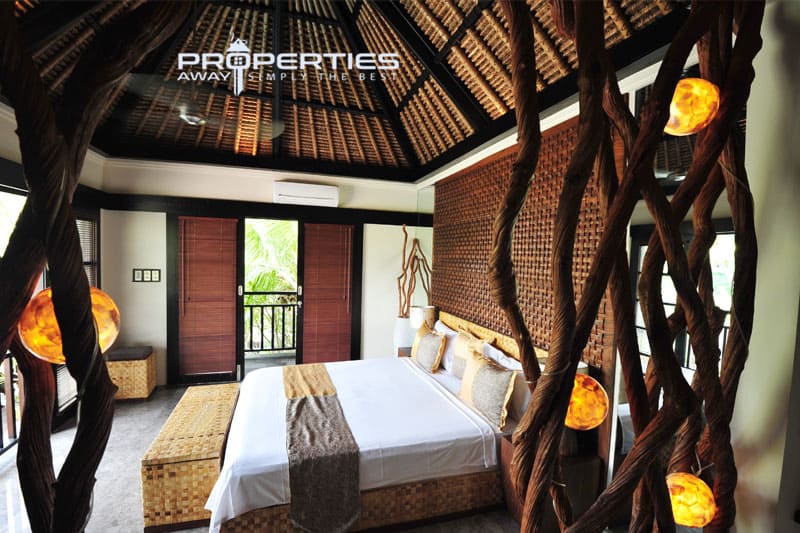7 steps: business hotel license Thailand
New enforcement of the Thailand Hotel Act
You definitely read about Hotel License Thailand in the media: the authorities are taking action to operate without a permit against hotel owners. Officials and police may go down to the hotel premises at any moment to check the status of their permit. If the hotel manager is unable to provide proof that the hotel has the authorization to function, he will be challenged at the local police station, charged with operating a hotel illegally, and advised that an arrest would be made if the hotel continued its services.
Illegal hoteliers are sentenced to up to one year in prison and a fine of up to 20,000 THB. If they continue to operate their company illegally, they can also be fined 10,000 THB daily. As a foreigner, the penalty could be combined with a blacklist.
Given the ongoing crackdown on hotel businesses without or with a dubious hotel license, it is advisable to act as soon as possible to clean up existing license documents or apply for a hotel license. The same applies to serviced flats, poshtels, guesthouses or even beach-side bungalows that qualify as a hotel under the law.
How to get a hotel permit in time?
Under the Hotel Act 2004, a hotel is described as any company offering less than a month’s paid housing, regardless of the amount or capability of the rooms. Even the lowest villa and condominium unit with one bedroom can qualify under the law as a hotel. However, to regulate this otherwise, the Hotel Act legitimizes ministerial laws.
In particular, these seven steps are needed in order to apply effectively for a hotel company application:
Step 1 Hotel License Thailand:
Is the business exempted under the 4-20 privilege? A request is only required if (i) the business qualifies as a hotel and (ii) the hotel is not licensed. Under the 2008 Ministry Regulation, if the business:
has no more than four rooms on all floors in all buildings,
has a total service capacity of no more than twenty guests,
qualifies as a small business providing an additional source of income to the owner,
and reports (form TM30) to the government of its daily rental business (hotel registrar).
If the company is in line with these criteria, it is uncertain whether it is not a hotel (‘no hotel’) or a license-free hotel (‘type-zero hotel’). The recent court rulings seem to favor the latter.
According to the ministerial regulation, the following kinds of hotels can be categorized as follows:
Type 0: hotels exempt from certain criteria, including the need to acquire a permit for hotel company,
Type 1: hotels offering lodging only, not more than fifty rooms, not less than eight square meters in size of each room,
Type 2: hotels offering accommodation and catering or restaurant facilities, not less than eight square meters in size of each room,
Type 3: hotels that provide accommodation, catering or restaurant facilities, the size of each room is not less than 14 square meters and that have either meeting rooms or entertainment venues that could be used for dancing, bars and nightclubs or spas under the Place of Service Act;
Type 4: hotels offering lodging, catering or restaurant facilities, meeting rooms and entertainment venues, not less than 14 square meters in size of each room.
Unless these hotels have more than 80 rooms, are situated in entertainment fields, or serve only food, alcohol or entertainment, and have opening hours after midnight, no entertainment venues will be permitted for Type 3 and 4 hotels.
Step 2 Hotel License Thailand:
The business of a hotel. An investment promotion can be acquired under category 7.4.3 (Hotels) from the Investment Board. The hotel company must therefore have at least one hundred keys (keys means rooms) or a minimum investment of not less than THB 500 million (excluding land and working capital costs). The promotion of the BOI needs a fresh investment and is therefore not readily qualified to promote a current project.
The hotel company can be operated by a company set up under the United States Thai Amity Treaty. However, the hotel premises may not be owned by such a treaty business. Hotel management companies in Thailand are excluded from the Foreign Business Act constraints.
Step 3 Hotel License Thailand:
Structure of buildings, floor plans, etc. The status and locations of the hotel company, construction structures, necessary equipment, minimum guest room area, health and environmental problems are legal elements for giving the permit.
Depending on the amount of floors, the hotel building must meet certain safety requirements. As an instance: The corridor requires to be more than one meter broad and needs to arrange for extinguishers with only two floors and less than 10 spaces. The sidewalk must be even broader for houses with more than two floors and more spaces. Emergency escape stairways made of fireproof material are needed in houses with more than four stories. It must also comply with fire extinguishers, smoke alarms, signage to the escape route, emergency lighting and other legal requirements.
Step 4 Hotel License Thailand:
Licenses and permits: An Environmental Impact Assessment (EIA) is necessary for a hotel of more than 80 rooms or depending on its size or place. The license must be acquired from the local government official. If there is less than 200 square meters of surface area in the restaurant, the owner must inform local authorities of a notification certificate only as set out in Public Health Act.
In the case of the building, a “Building Inspection Certification” issued by Licensed Civil Engineer under Thailand’s law shall be obtained under the Building Control Law, or when the building is outside of the Buildings Control Zone.
The conditions of the law on urban planning as well as the law on public hazards, the law on public health and the law on promotion and maintenance of the national environment must therefore be taken into account in order to prevent a prohibited property. In addition to the law on building control, this law must be respected. The project must also conform to the Ministry’s Hotel Business Operations regulations.
Step 5 Hotel License Thailand:
Contractual arrangements: The hotel requires adequate contractual provisions in accordance to an operating hotel model. (https://pugnatorius.com/hotel-management-agreement/)
Step 6 Hotel License Thailand:
Hotel Manager Qualification. The hotel requires a committed hotel manager with adequate education or experience and management responsibilities. It could be the same individual as the operator of the hotel company.
Step 7 Hotel License Thailand:
Request process. Hotel, restaurant, hotel company, and entertainment companies with discotheque, bar, night-club and spa licenses may be implemented. The following applies. The permit shall be valid for 5 years and may be renewed.
Further permits for food, liquors, entertainment and more may be needed.
The (obsolete) French translation should be noted: https://medium.com/@pugnatorius/les-7-étapes-pour-avoir-une-licence-hôtelière-en-thaïlande-1900172cffe1

Services for professional hotel licensing
Properties Away is a Samui-based specialist provider of bespoke transactional legal and tax advice in the corporate and property legal and taxation industry sectors. The Real Estate firm assists hotel operators without a license to apply at the competent governmental agencies.
The steps include:
• Examination of the legal requirements for obtaining a hotel permit and the type 1 to 4 allocation in accordance with the law.
• Review present compliance with the Building Control Act (BCA) and with construction, health, and environmental specifications for the building structure, the floor plans, interior design and support and support and support to the rebuilding.
• Examination of the present conformity for the demands of hotel company licenses by the hotel operator, employees and hotel management.
• Support and support in previous measures for setting the legal basis for applying for a hotel company license, including an occupational permit, an evaluation of the environmental effect.
• Design and preparation of legal agreements and papers supporting them, such as hotel management or the like.
• Hotel permit application at the Provincial Administration Department or the Provincial Governor’s Office and support and tracking throughout the entire implementation.
It’s distinct in every situation. Without information and paperwork, the law firm will not accept telephone inquiries and ad-hoc e-mail requests on the legal framework in Thailand. Individual assistance and professional advice can only be obtained under a paid advisory contract.
Disclaimer: A small amount of understanding is dangerous. This low-level view is not a legal advice nor does it constitute a connection between lawyer and client.








